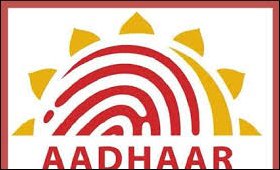|

|
Aadhaar data secure, those without unique number won't suffer: UIDAI
|
|

|
|
| Top Stories |
 |
|
|
|
SME Times News Bureau | 22 Mar, 2018
The Unique Identification Authority of India (UIDAI) on Thursday told
the Supreme Court that the biometric and demographic information of
people who have enrolled for Aadhaar was secure, while no one will
suffer loss of benefits for its lack.
In a first-ever power point
presentation in the open court, the constitution bench of Chief Justice
Dipak Misra, and Justice A.K. Sikri, Justice A.M. Khanwilkar, Justice
D.Y. Chandrachud and Justice Ashok Bhushan was told that the data in
encrypted form was "very very secure".
UIDAI CEO Ajay Bhushan
Pandey said they start collecting data from the birth of a child which
is twice updated at the age of five and later at 15 years and that 1.2
billion people have already enrolled.
He also said that a number once given to an enrolled person would not be repeated even after their death.
Pointing
to the "exception handling mechanism" in the UIDAI system, Pandey said
that "no one will suffer the loss of benefits for the lack of Aadhaar"
as the bench pointed to illiterate, the poor and tribals who may not be
aware that over time their biometrics have undergone changes and must be
updated.
In the post-lunch presentation that lasted for an hour
and a half, he said that every five years, there may be changes in the
biometrics and that they are updating information of 25 crore Aadhaar
holders annually.
However, the CEO said UIDAI could not handle
every problem as Justice Sikri asked him what happens if a person goes
to a ration shop and even though his biometric details match, he is
refused goods which are later drawn by the shop owner in an unauthorised
manner.
"It has to be handled at a different level," Pandey told
the court as it asked if UIDAI has the means to know whether the
benefit was denied or what is the extent of denials of services based on
Aadhaar.
Stressing the entire system for storing the biometric
data and demographic information is safe and free from any kind of
intrusion, Pandey said that it would "require the age of the universe to
crack the data stored in encrypted form".
Fielding questions,
largely from Justice Sikri and Justice Chandrachud, Pandey said that
people like leprosy patients or others who don't have biometric details
would get Aadhaar on the basis of their facial scan or their registered
mobile number, which would operate on OTP (One Time Password) system.
Stressing
that there was no intrusion in the privacy of Aadhaar users, he said
"we are ignorant about the purpose and details of the transactions being
undertaken by the people" whose Aadhaar is linked to various services.
Noting
that data matching software has been bought from the world's three best
companies and stored on UIDAI's 6,000 servers, Pandey said that these
are not linked to internet to eliminate possibility of any backdoor
access to the data.
Pandey will continue with his presentation on Tuesday.
Meanwhile,
Attorney General K.K. Venugopal told the bench that tremendous efforts
by various government agencies and experts had gone into erecting the
architecture of Aadhaar at an expenditure of Rs 9,000 crore.
He
said 61 committees went into the issue threadbare before the present
Aadhaar edifice was put in place, adding all the committees were
unanimous on creating a legal framework for unique identity.
Continuing
his arguments, the Attorney General on the second day of his submission
took the court through the list of the dates starting from March 3,
2006 till 2016 when the law was enacted to demonstrate the exercises
undertaken by the present and the previous government.
To this, Justice Sikri said: "These are all dates, right now we are examining the constitutional validity of Aadhaar Act."
As
Justice Chandrachud observed "it took you seven years to enact a law",
Venugopal said that the legislation was of 2010 and it took time to do
ground work.
|
|
|
| |
|
|
|
|
|
|
|
took you seven years to enact a law
realtruth4you | Fri Mar 23 11:07:57 2018
SC took 6 years to give death sentence to nibhaya's murderers

|
|
|
|
|
|
|
| |
| Customs Exchange Rates |
| Currency |
Import |
Export |
US Dollar
|
66.20
|
64.50 |
UK Pound
|
87.50
|
84.65 |
Euro
|
78.25
|
75.65 |
| Japanese
Yen |
58.85 |
56.85 |
| As on 13 Aug, 2022 |
|
|
| Daily Poll |
 |
 |
| PM Modi's recent US visit to redefine India-US bilateral relations |
|
|
|
|
|
| Commented Stories |
 |
|
|
|
|
|
| |
|